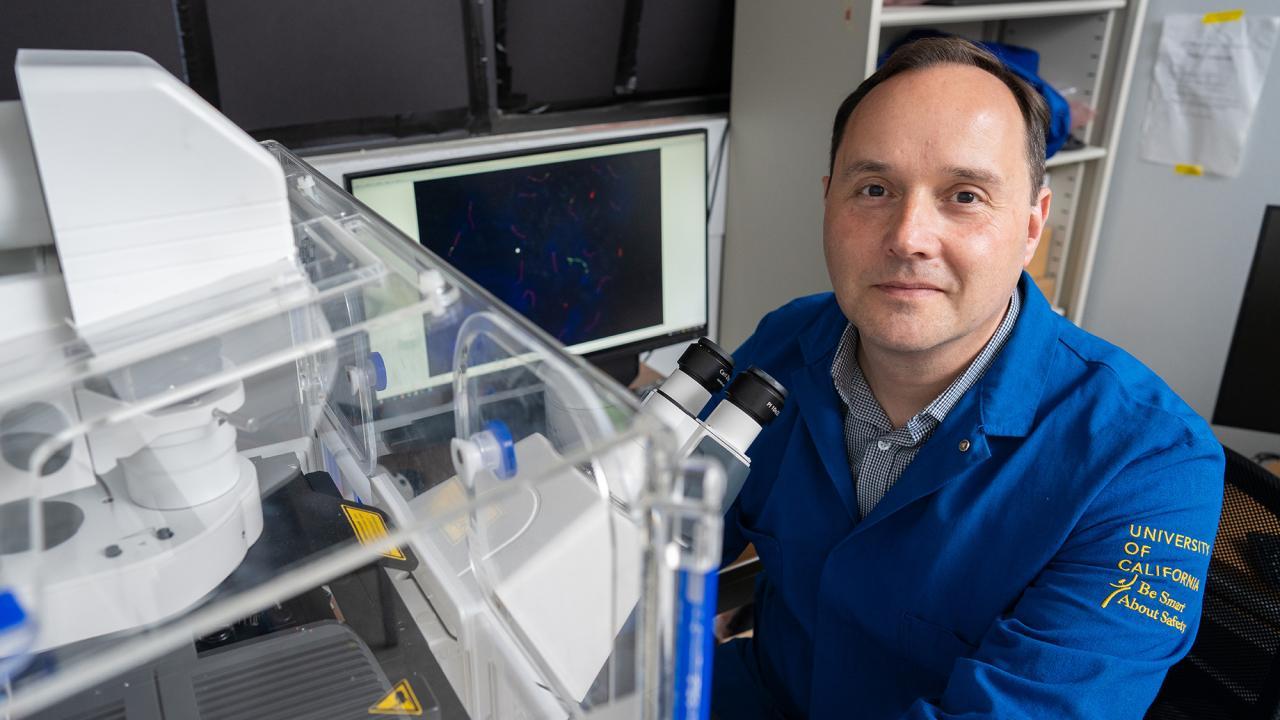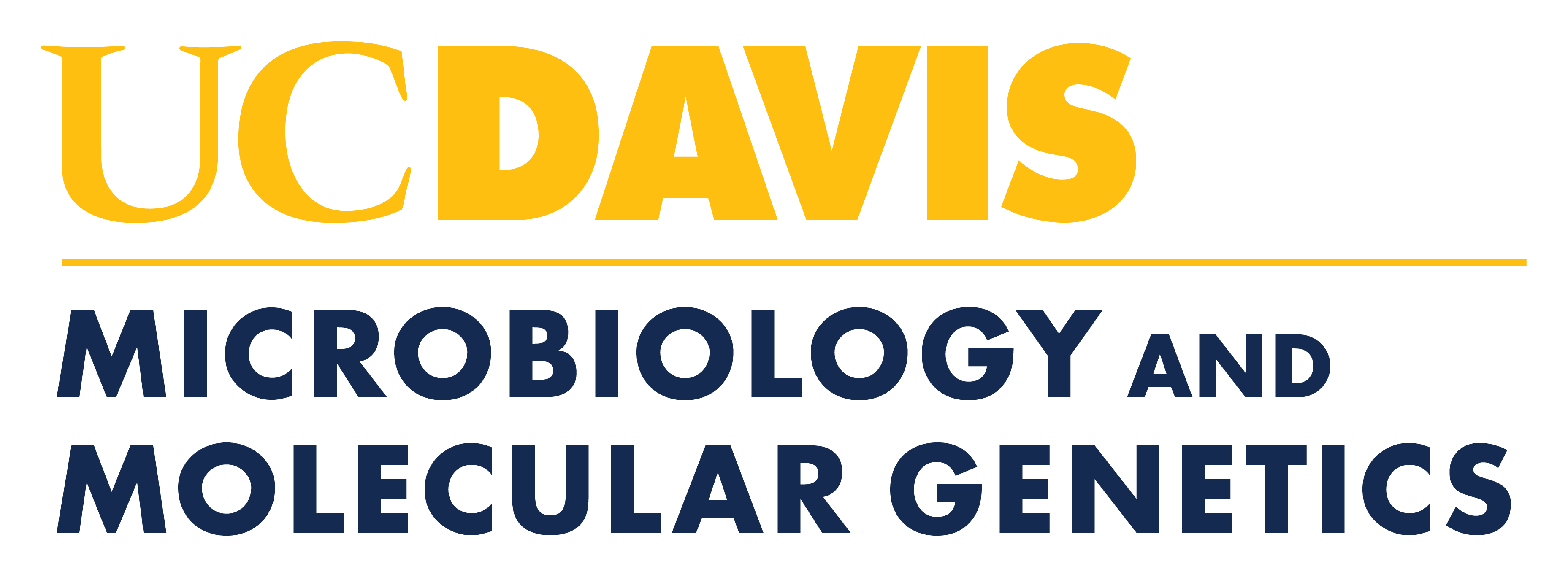
Cell Biologist Elected as a Fellow of The Royal Society
Neil Hunter recognized for discoveries key to fertility, heredity and evolution
Neil Hunter, a professor in the Department of Microbiology and Molecular Genetics and an Investigator with the Howard Hughes Medical Institute, has been elected as a Fellow of The Royal Society in London.
This prestigious appointment, announced May 20, was offered to only 70 scientists across the world.
“I’m thrilled and surprised,” said Hunter. “The acknowledgment means a great deal to me, because it’s an election by some of the best scientists in the world.”
“I’m especially thankful for the amazing people who have worked in my lab over the years,” he added. “Everything that we’ve accomplished has depended on having students and collaborators who were highly talented and motivated.”
Hunter was elected for his studies of homologous recombination — a chromosome repair process that lies at the heart of sexual reproduction, evolution and natural selection. Understanding how this process works at the molecular level — and how it is affected by a person’s health, age and environment — could lead to improved treatment for fertility disorders, and enhanced techniques for breeding and genetic engineering plants and animals.
